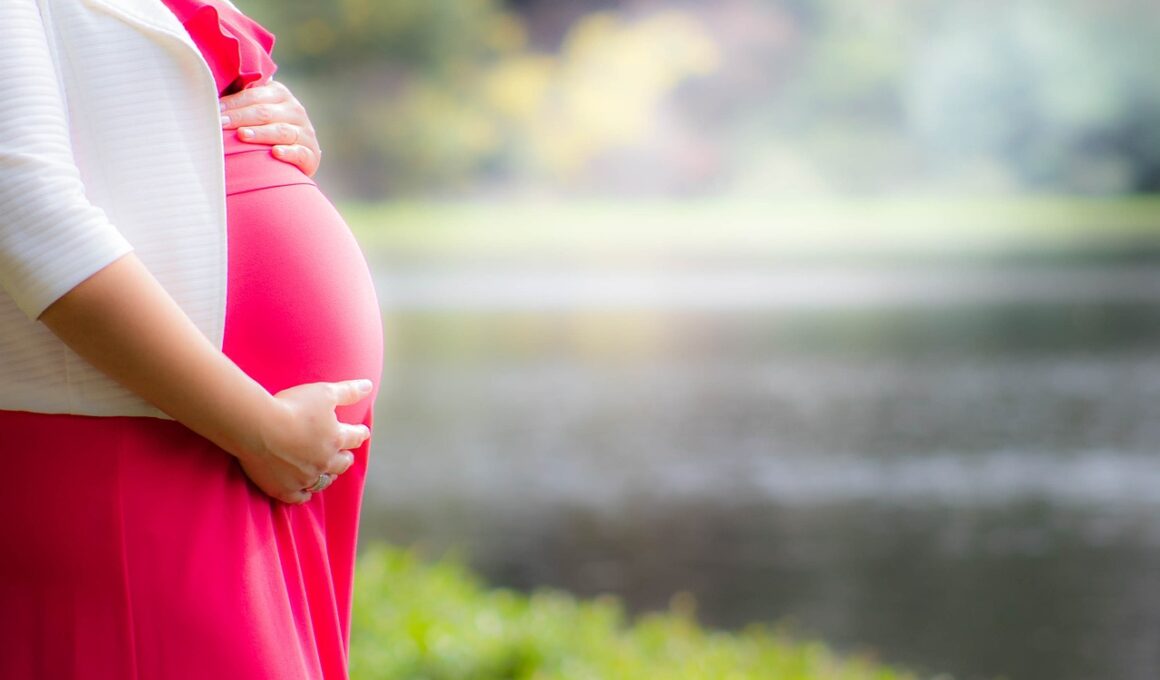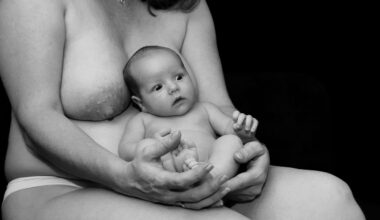The Science Behind Pilates Benefits in Pregnancy
Pregnancy is a transformative time in any woman’s life, bringing a multitude of physical and emotional changes. Practicing Pilates during pregnancy can be a banner of support. This low-impact exercise focuses on improving flexibility, building core strength, and enhancing overall body awareness. It helps pregnant women navigate the challenges of their changing bodies, making it an ideal choice for expectant mothers. Research shows that Pilates not only benefits physical health during pregnancy but also offers mental wellness perks. By maintaining a consistent Pilates routine, women can alleviate common discomforts associated with pregnancy such as back pain and fatigue. Specialized Pilates routines can also provide women with the necessary tools to prepare for labor. Furthermore, practicing Pilates encourages proper posture and alignment, helping to promote balance and stability during this dynamic phase. Consequently, Pilates has gained recognition among health professionals as a safe and effective form of exercise during pregnancy. As with any exercise program, it’s crucial for pregnant women to seek guidance from healthcare providers or certified Pilates instructors to ensure safety and adaptability during workouts, emphasizing the need for personalized approaches to fitness.
One primary benefit of Pilates during pregnancy is its ability to strengthen the core muscles that support the spine and pelvis. Studies indicate that a strong core minimizes the risk of back pain, which is a common complaint during this period. Furthermore, Pilates exercises often emphasize controlled movements, which help enhance balance and coordination that can be impaired as the pregnancy progresses. Engaging in these low-impact exercises provides a safe method for maintaining fitness without unnecessary strain. Pilates also promotes the engagement of pelvic floor muscles, leading to benefits such as enhanced bladder control and reduced risk of pelvic organ prolapse. With the increasing focus on breathing techniques in Pilates, expectant mothers can also learn skills helpful for labor and relaxation. By integrating these skills into their routine, many women report feeling more in control and less anxious about childbirth. Keeping mental health in check during pregnancy is equally important. The mindfulness associated with Pilates practice can promote relaxation and help foster a positive mindset. Overall, the multifaceted benefits of Pilates highlight its role as an essential component of prenatal fitness and wellness.
Improving Body Awareness and Posture
Another significant advantage of practicing Pilates during pregnancy is the improved body awareness it fosters. As women navigate through various bodily changes, developing a deeper connection with their evolving shape is vital. Pilates encourages mindful movement, enhancing proprioception and allowing pregnant women to appreciate their bodies’ capabilities. This awareness can result in greater self-confidence throughout the pregnancy journey. Additionally, increased body awareness can help detect physical imbalances or discomforts early on. Pilates exercises often include movements that promote spinal alignment, which is essential for counteracting the postural changes that accompany pregnancy. Enhanced posture can mitigate stress on the muscles and joints, preventing discomfort while enhancing mobility. The focus on alignment can also reduce the strain on the back and pelvis, allowing for a smoother experience in an expectant mother’s daily activities. Furthermore, the strengthening of intrinsic muscles contributes to stability during various tasks, allowing women to carry their growing bellies with more ease. Evidence suggests that maintaining good posture can positively impact breathing and digestion, both of which can be compromised during pregnancy. With consistent practice, Pilates supports healthier bodily mechanics.
Moreover, Pilates can substantially aid in alleviating specific pregnancy-related discomforts. For instance, many women experience sciatic nerve pain due to the pressure from the growing uterus. Specific Pilates exercises can help relieve this discomfort by stretching and strengthening the hip and lower back muscles. Improved flexibility in these areas can mitigate pressure on the sciatic nerve, helping women manage pain more effectively. Furthermore, Pilates often incorporates gentle movements that promote circulation and reduce swelling in the legs and feet, another common concern during pregnancy. Engaging in consistent Pilates practice can encourage better lymphatic drainage and decrease fluid retention, leading to enhanced overall comfort. These adaptations contribute to a more enjoyable pregnancy experience, equipping women with tools necessary for the physical challenges ahead. Besides its physical benefits, Pilates plays a crucial role in enhancing mental well-being during pregnancy. The emphasis on controlled breathing and mindfulness promotes relaxation and can reduce stress and anxiety levels that may arise during this life-changing period. Many mothers find that they emerge from Pilates sessions feeling renewed and empowered, ready to face the next steps in their journey.
Preparing for Labor and Delivery
As labor approaches, Pilates can be an invaluable tool for pregnant women to prepare for childbirth. The conditioning benefits accumulated through Pilates can translate into greater stamina and endurance, essential qualities for labor. Women who practice Pilates report feeling more physically and mentally equipped as they enter into the birthing process. The focus on breath control can play a significant role during labor, as it can help manage pain and maintain relaxation. Furthermore, Pilates incorporates positions and movements that can help women develop coping strategies for contractions. By practicing these strategies beforehand, mothers might find it easier to adapt to the challenges of labor. Additionally, strengthening the pelvic floor through specific Pilates exercises can promote an easier delivery experience. Evidence shows that a well-toned pelvic floor can support optimal fetal positioning and even reduce the risk of tearing during delivery. Furthermore, an increased understanding of body mechanics encourages better movement options during labor, making Pilates a valuable resource. Expectant mothers are advised to attend classes specifically designed for their needs, ensuring the exercises are safe and effective for their individual progression.
Nutrition and postpartum recovery play significant roles in the context of pregnancy and postpartum. Maintaining a balanced diet is vital to support the physical demands of pregnancy. Pilates can complement healthy eating habits by encouraging an active lifestyle that promotes overall wellness. Engaging in this form of exercise can yield positive changes in body composition, even as hormonal fluctuations occur. Many women who participate in Pilates during pregnancy find it easier to return to pre-pregnancy fitness levels. Moreover, Pilates can help in rebuilding core strength and pelvic floor strength post-delivery, which is critical for recovery. Evidence suggests that women who practice Pilates during and after pregnancy experience reduced recovery times and improved muscle tone. Adapting and varying Pilates routines as the body recovers ensures that mothers can safely re-engage in fitness without undue stress. Additionally, Pilates fosters a supportive community among new mothers, offering an opportunity to connect and share experiences. This social aspect further contributes to mental well-being and encourages women to stay committed to their fitness routines for long-term health. Ultimately, Pilates stands as a holistic approach to navigating pregnancy and postpartum recovery.
Conclusion: The Lasting Impact of Pilates
In conclusion, embracing Pilates during pregnancy can have profound, lasting impacts on both physical and emotional well-being. The multifaceted nature of Pilates not only prepares mothers for labor but also provides them with enhanced body awareness, posture, and mental resilience. It equips expectant women with coping tools to address physical discomforts and challenges associated with pregnancy. The incorporation of tailored Pilates exercises throughout pregnancy promotes strength, flexibility, and balance, allowing women to feel empowered in their changing bodies. These benefits extend beyond pregnancy to support recovery postpartum, playing a crucial role in helping mothers regain strength and confidence. Pilates creates a nurturing environment that fosters community and connection among participants, lending a sense of belonging to expectant mothers. The focus on mindful movement cultivates a deeper appreciation for one’s body and its capabilities. Furthermore, research continues to highlight the positive influence of movement on mental well-being and stress reduction. Altogether, Pilates is not just a fitness regime; it becomes a holistic journey that influences the transition into motherhood. Expectant mothers are encouraged to explore Pilates classes specifically designed for their wellbeing during this unique life phase.
The Role of Pilates in Prenatal Wellness
The significance of Pilates during pregnancy cannot be overstated as it serves as a foundation for prenatal wellness. Through careful consideration of individual needs, Pilates demonstrates the versatility and adaptability to cater to pregnant women at any fitness level. It significantly minimizes pregnancy-related discomfort while equipping women with the tools necessary for an empowered birthing experience. Moreover, Pilates nurtures both physical and mental health, establishing a strong framework for mothers to embrace their changing bodies and prepare for motherhood. Its holistic approach encourages expectant mothers to focus on what they can control: their movements, breathing, and body alignment. To conclude, integrating Pilates into prenatal routines offers a plethora of benefits, ultimately guiding women through to a smoother pregnancy experience. Engaging in mindful exercise as Pilates invites pregnant women to connect not only with their bodies but also with their babies. Taking steps to maintain fitness can lead to an empowered and joyous pregnancy journey.


